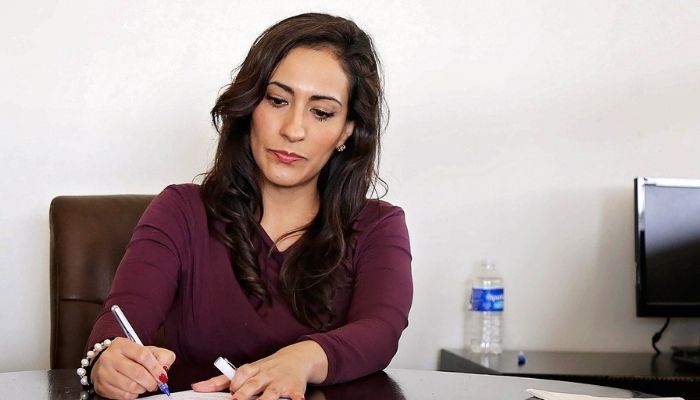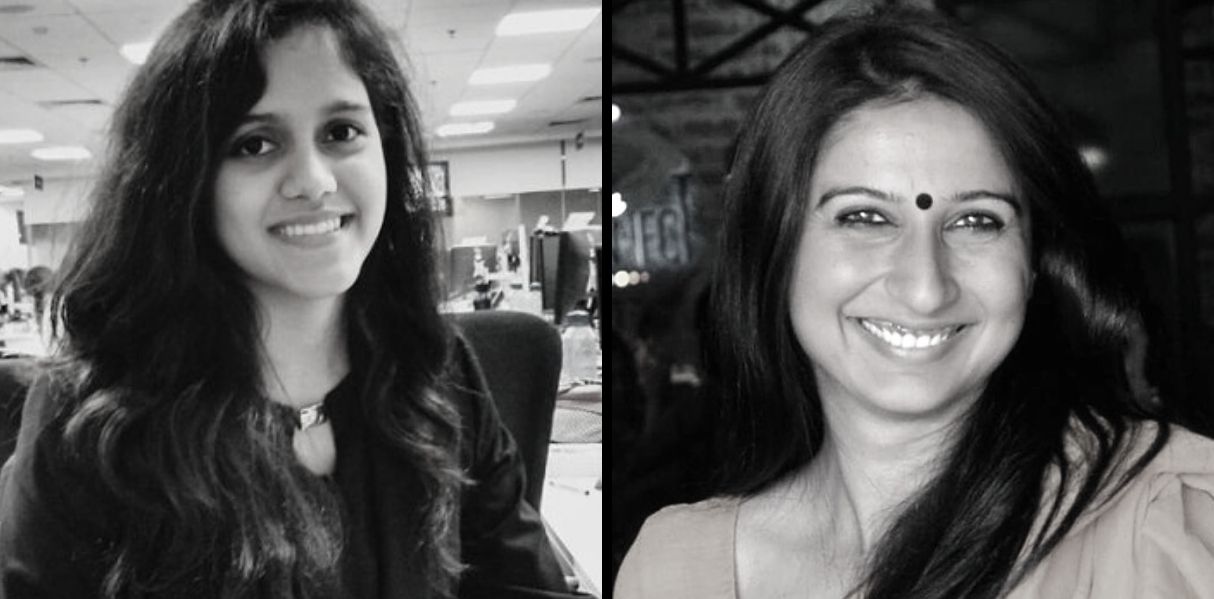Written by: Rajkanya Mahapatra
Triyansha Vijayvargiya is an Investment Associate with the Chiratae Ventures (formerly IDG Ventures India). An IIT Kharagpur graduate, Triyansha was working as an Investment Banking Analyst at Deutsche Bank before joining Chiratae.
In conversation with, Pallavi Pareek, Founder and CEO, Ungender, Triyansha discusses the urgent need for venture capital firms to have a conversation about diversity, inclusion and balance.
Pallavi: There has been a lot of conversation about the need for more women in the startup ecosystem. As someone who is a part of the industry, what is your take on it? Do you think gender diversity and inclusion is worthy of a discussion when it comes to the startup ecosystem?
Triyansha: It’s important to have an active conversation on topics like culture, diversity, and inclusion at the workplace level but also specifically within the startup ecosystem. Just to highlight a statistic here, it was reported in a LiveMint article that the number of funded startups with at least one female co-founder declined from 17 per cent in 2018 to 12 per cent in 2019. As for the funding amount, the number is in last, single digits.
It’s important to talk about diversity and inclusion balance in the funding and founding teams within the startup ecosystem. An interesting study done by McKinsey in 2015 investigated what the economic implications of achieving gender parity in India would be and the resulting number amounted to over 2.5 trillion by 2025. I think that’s a powerful statistic.
Beyond these numbers, this topic is also incredibly close to me. Having been at an institute where the gender ratio was 1 woman for every 10-20 men in the classroom, followed by my entry in the male-dominated banking industry, and now working in the startup ecosystem. Throughout my journey, I think gender parity and inclusion needs to be talked about actively and repeatedly. Once we solve one problem, I think there will be other issues that will come up and it’s incredibly important. I’m super happy we’re having this conversation today.
Pallavi: What would you have to say about the lack of women in venture capital firms, both at the entry level and at the leadership level and the impact that has on investment decisions?
Triyansha: Certainly, I think the statistic you pointed out about India not having enough women in investment teams – there’s no denying the fact that there aren’t enough women. It’s not just India, it’s the same situation globally. Not too long ago, TechCrunch studied the top hundred VCs globally and assessed them on the basis of investments longevity, fund size, and more. They realised that only 38% of those firms had a female investing partner. These are the top hundred firms.
Now, if we extend this list to the top about 2300, VC and micro VC funds – only 8% of all firms have a full time investing partner who’s a woman. This disparity itself points out that there is merit in having women on board. It is an indicating factor that having a female investing partner might have been one of the contributing factors that led some of these firms to be in the top hundred VC firms globally. This is just one statistic. I think there are enough indicators and studies done to highlight the financial upside of a gender balanced team, especially at the early stage.
Coming to my experience, I think there have been a couple of instances in the time that I’ve been in this industry. One of the things that has concerned me over time is that in a lot of Indian VC firms, there are women who are, let’s say, in the investor relations team, there are enough women who are in the product team or financing team, but not so much in the investment team.

While it is great that there are women in other functions in an organisation and that you are creating a good firm but that can’t act like proxy for not having women partners on board, right? It is incredibly important for women to have a seat at the decision making table. I think a lot of firms would have to take a look at, let’s say, their weekly meetings and see around the table, how many women do they actually have on the table besides the allied teams.
The second thing that I’ve come across and heard from peers mostly is that when talked about gender balance, they tend to say: “while it’s great to have diversity, we wouldn’t compromise on merit.” Well, it amuses me to think that when we’re think of diversity, why do we think we’ll have to compromise on anything?
Diversity should mean that you’re strengthening your board, you are strengthening the point of view that you are bringing into the team. The first thought about gender balance and creating a more inclusive culture has to be that it’s creating something that you can be proud of. Creating a more inclusive culture and bringing in more points of view on the table is only going to give you more opportunities to invest in scale and avoid some of the mistakes or blind spots that you wouldn’t have seen had if not been put in perspective.
Pallavi: To solve/bridge the gender gap, do you think funds dedicated just for women would help more women entrepreneurs enter the startup ecosystem?
Triyansha: If I were to come across a great startup founded by a woman entrepreneur, and let’s say, it’s a solo woman entrepreneur, and if I truly believe in that idea, and I know and I’m able to understand that this is a wide space and a major problem is being solved, then it would be hitting myself in the foot, if I say that, no, you should go to a dedicated space, right?
If I have to create great returns for my fund, then it’s important for me to look at seemingly non-obvious opportunities, irrespective of the gender or the cost, or any kind of biases that would arise as a human trait. So it’s important for me to be aware of these cognitive biases, and not give into them in the investing world if I were to create strong returns. So I don’t think in the long term, these dedicated spaces would take away the importance of inclusion in mainstream funds.

Pallavi: Is there anything that VC firms can do to further the cause of gender inclusion?
Triyansha: So, I think this question points at two things. The first one is – how do we have more women participating in the startup ecosystem, both at when they’re applying to VC firms and at the founder stage as well. So, I address both the points and I know that actively, at least in the last one or two years that I have been associated within the VC ecosystem, I have noticed that active steps are being taken to ensure that when you are interviewing, there are enough number of women that are given opportunity to interview in the first place.
There’s a statistic that I got from my senior who was in Chiratae prior to me, said that for every three male applicants, interview one woman applicant, and that is just the beginning of an effort on this site. So, a lot of firms are actively making efforts to ensure that they have enough representation when it comes to providing opportunities, and then take it from there.
Pallavi: How can we get more women to enter the startup ecosystem in India?
Triyansha: On the on the startup side, I think highlighting more and more of these success stories from founders who have started a company and scaled it, but definitely encouraged a lot of women to startup at much earlier stages in their careers. At the end of the day, starting up is a lot about taking the leap of faith in that direction. You would also be able to highlight that journey better when you can do your market study, your product-market fit, and you can have ‘n’ number of examples to say that, okay, this might work and this might not work.
At the end of the day, it is that leap of faith and courage to say, “Okay, I am taking that risk with everything that I have.” It’s important for women to see that it’s happening in their circles. There is enough support and mentorship when they do they take that leap of faith. Getting support shouldn’t be left to circumstances. It’s important to teach, especially young women, how they can start a conversation to garner support if they don’t have a support system in their immediate circles.
Highlighting stories of women who have been venture capitalist or women who have been entrepreneurs is certainly going to help a lot of women out there. I do hope that it does to anybody who’s listening to this talk.
Pallavi: In your time, have you observed any differences in how men and women approach VC firms? What impact do these differences have in the grand scheme of things?
Triyansha: I will talk about a few differences and I somehow expected these differences to come because I’ve been on the other side of the table when I started out. Some of these differences are where women tend to have a lower ask in terms of funding and they come with a lot more validation and proof points to be very sure of the idea that they’re pitching. This is not a generalisation. These are some of my observations from my conversations with startups.
On the other hand, men tend to ask for funding even when their work might only be 45 percent done. They have the confidence to come and tell us that it will be done. I really get that kind of conviction. This is one of the differences that stands out for me besides other things in the pitching strategy itself, right.
As a lot of early stage funding is driven by the conviction of the founder, we need to talk about how women won’t ask for a lot or will only pitch once they’re about 80 percent sure. I think that is why I have personally tried to be active in some of these support/network groups where we talk about these things and discuss what is right, what’s great and what’s not. Support and lift another woman up and say, “This is a great idea, you should run with it.”
Video Highlights
03:01 – Need For Conversation On D&I In VC Firms
07:56 – On Lack Of Women In VC Firms In India
14:07 – How To Fix The Gender Gap In The Startup Ecosystem
28:02 – Anticipated Impact Of Gender Inclusion In VC Firms
33:23 – Differences b/w Male And Female Startup Founders
You can watch the full video, here.
This interview has been edited for length and clarity.
Ungender Insights is the product of our learning from advisory work at Ungender. Our team specializes in advising workplaces on workplace diversity and inclusion. Write to us at contact@ungender.in to understand how we can partner with your organization to build a more inclusive workplace.










